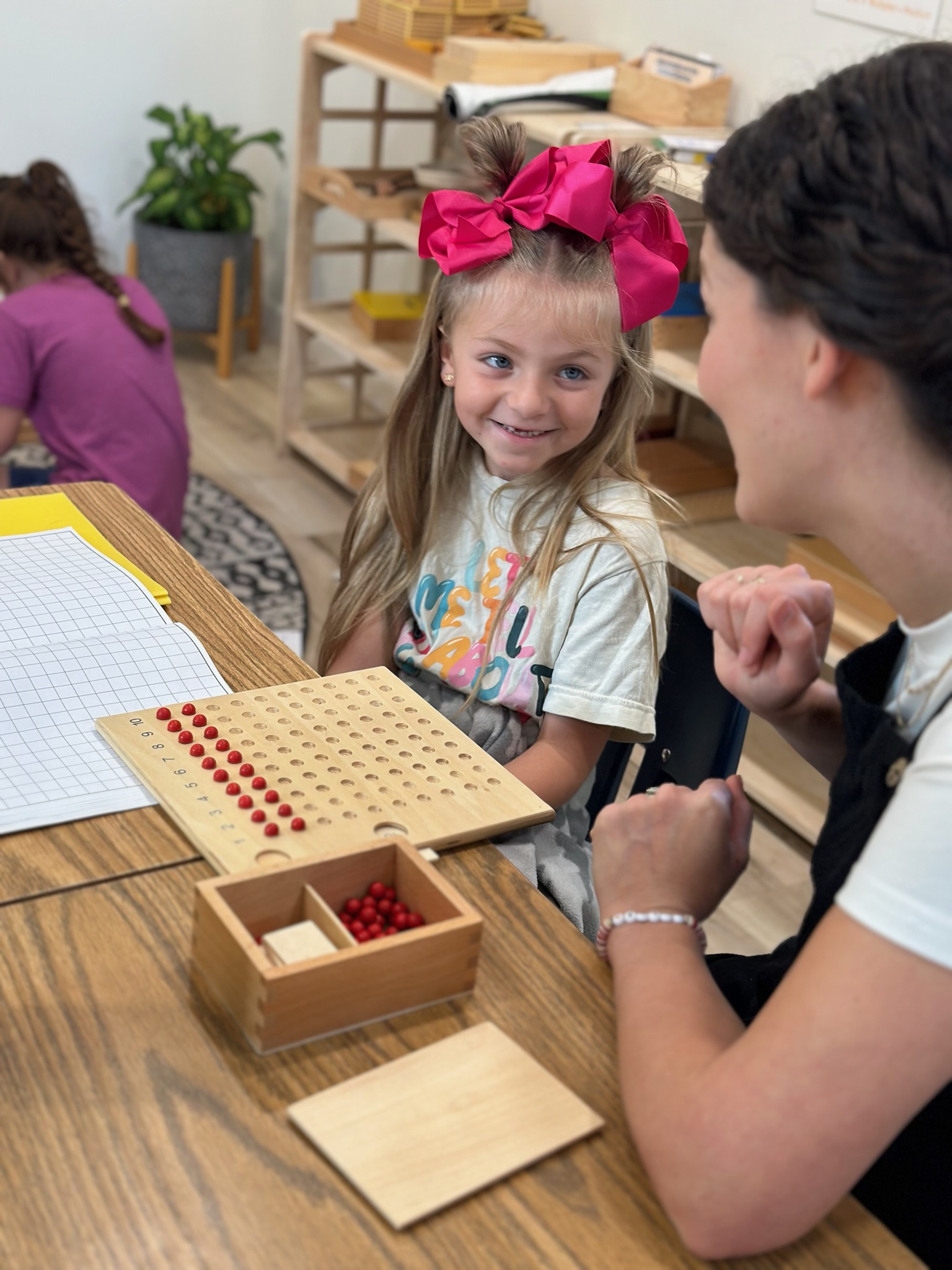
Montessori Elementary Program
The Montessori Elementary Program implements an individually paced curriculum that challenges children academically and safeguards their well-being and sense of self. It engages the child as contributing members of a respectful community and promotes learning to question, think critically, and take responsibility for their own learning.
Learning in the Elementary House
In a Montessori Elementary classroom, students work individually or in small groups, at tables or on mats on the floor. The classroom is a happy community where the students are focused. They take joy in their work. They invent, explore, experiment, confer, and create.
The Elementary House assists children between the ages 6-12 as they enter a new period of development characterized by a transition from concrete to abstract thinking. Their growing interest in socialization, their ability to think critically, their need for fairness and social justice, and their compassion for people, is at the core of their curriculum. The saplings at FAM expand upon the learning fostered in the Children’s House. The curriculum contains the following areas of learning: Practical Life, Mathematics, Language, and Cultural Studies.

Saplings Curriculum
Practical Life
Practical Life expands from the foundation laid in the Children’s House. At the elementary level, it shifts from a focus on self-care and fine motor skills to skills that help the children connect with their interests in the outside world by helping them to organize their time and giving them opportunities to take part in their community.
Mathematics
The ideas of number concepts, place value, numerals, and related quantities are reinforced and expanded upon within the Elementary program. Newfound purposes for familiar math materials provide children with the means to consider number concepts, mathematical operations, and more complex functions, helping to expand advanced mathematical knowledge and understanding.
Language
Reading and writing are integral to all subjects in Montessori Elementary. Students master conventions with thorough studies of grammar, spelling, and mechanics. They read, analyze, think critically, and compare and contrast literature. Using these reading and writing skills, they present ideas through formal and informal presentations.
Cultural Studies
Cultural studies are interdisciplinary and integrate zoology, botany, geography, geology, physical and life sciences, anthropology and history. Through these lessons, children explore the interconnections of all living things.









